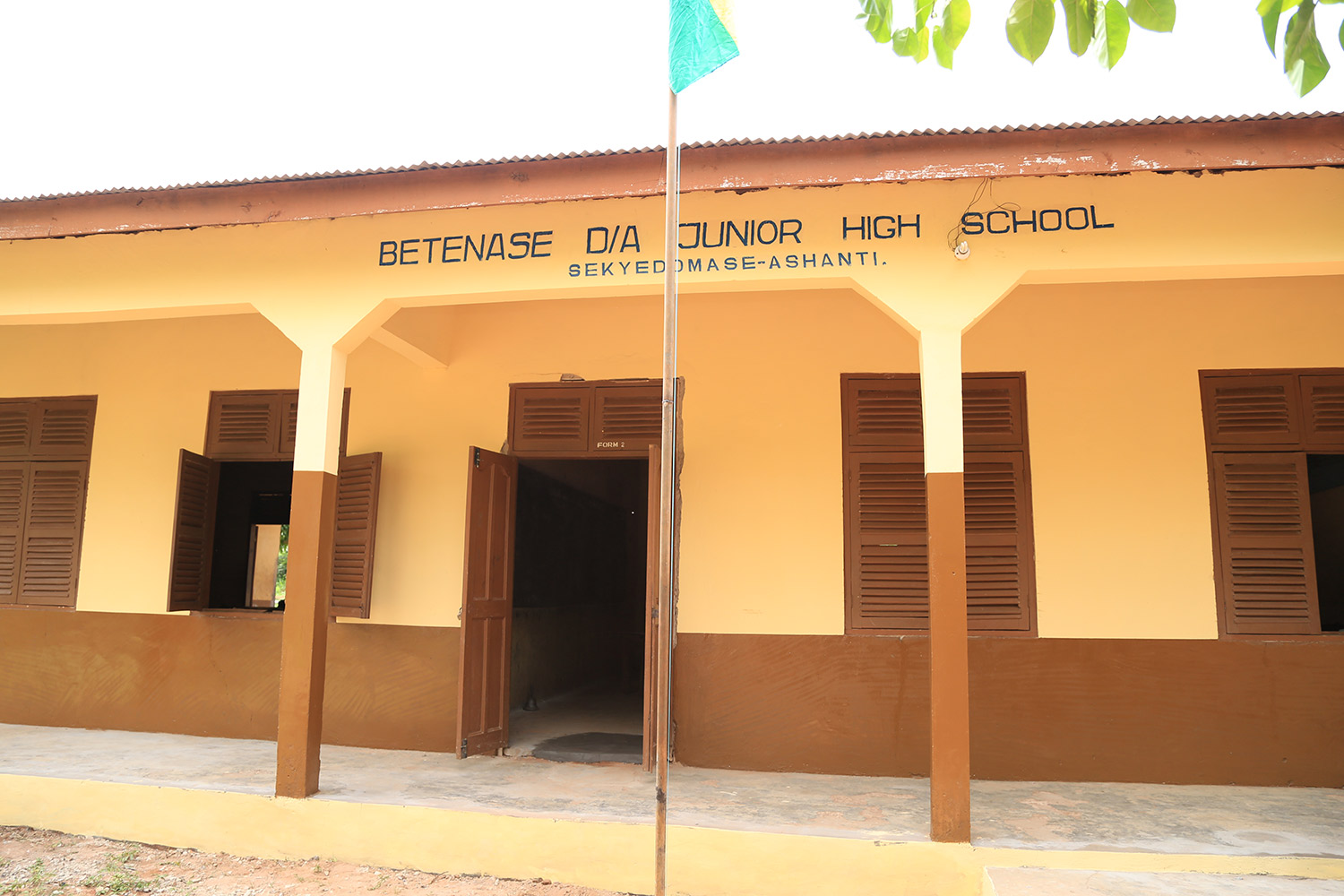A picture speaks a thousand words, and in the case of Owura Kwadwo Hottish, a picture was the only way to teach his students ICT. A post on social media about his unconventional teaching methods brought to light the plight of teachers and students in Ghana and across the globe. As a technology brand that is on a mission to empower every person and every organisation on the planet to achieve more – Microsoft believes that enablement must start at grassroot level – by way of education. It is the teachers and the work they do through their lessons, that allow this to happen effectively.
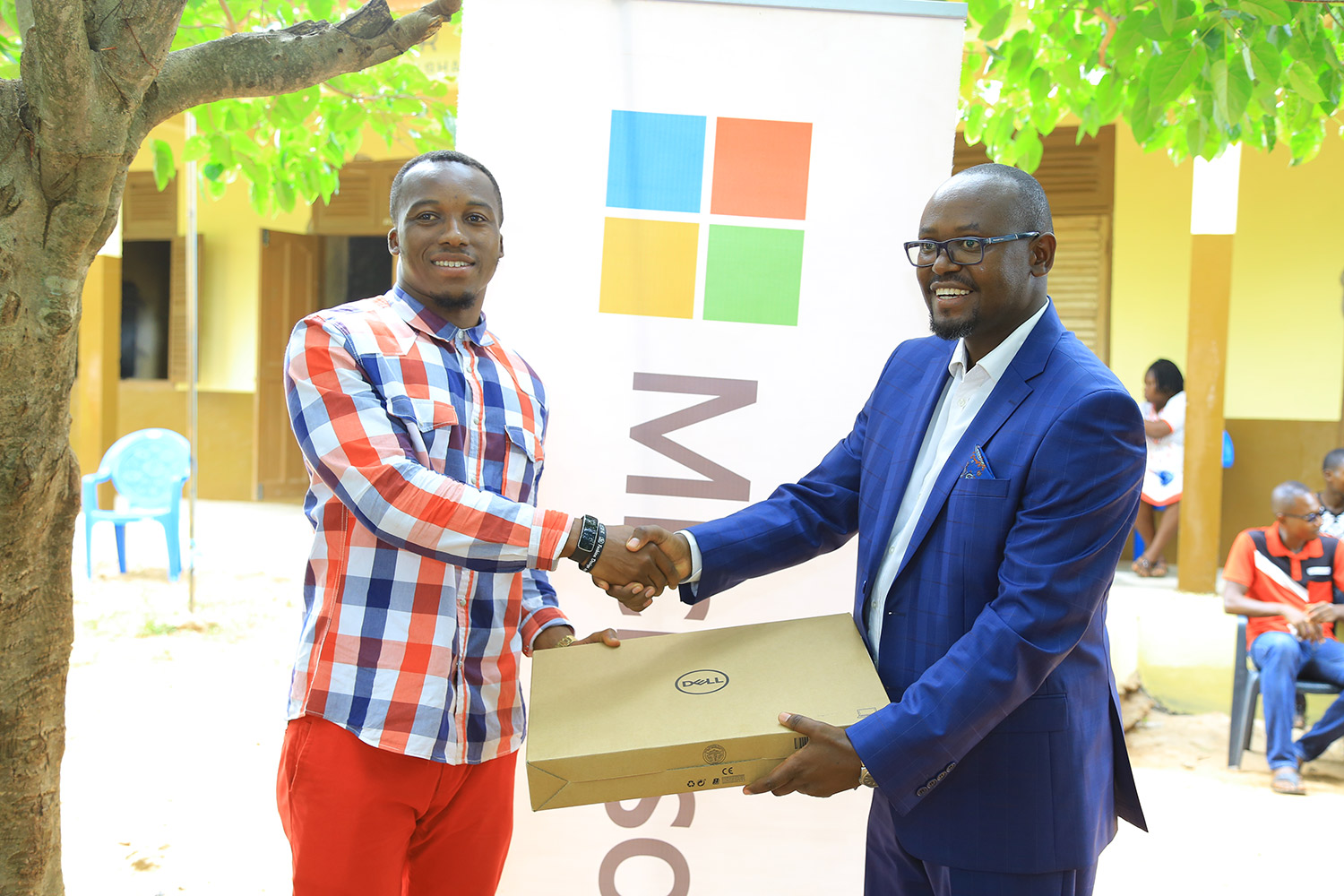
The fourth industrial revolution is in full swing. I’ve always been proud to be a part of an organisation that places people at the center of making the ‘shift’ to a digitally transformed society. We’ve continued to show our commitment to this through our efforts across government services, manufacturing and perhaps more relevant to this article, education. That’s why recently, in an effort to further encourage and propel digital transformation in the continent’s education sector, to advance the creation of a knowledge-based economy and in collaboration with eSolutions Consulting – a local Education partner in Ghana, we equipped the school with a computer lab at Betanase Junior High School, located in Sekyedumase, Ashanti Region, Ghana.
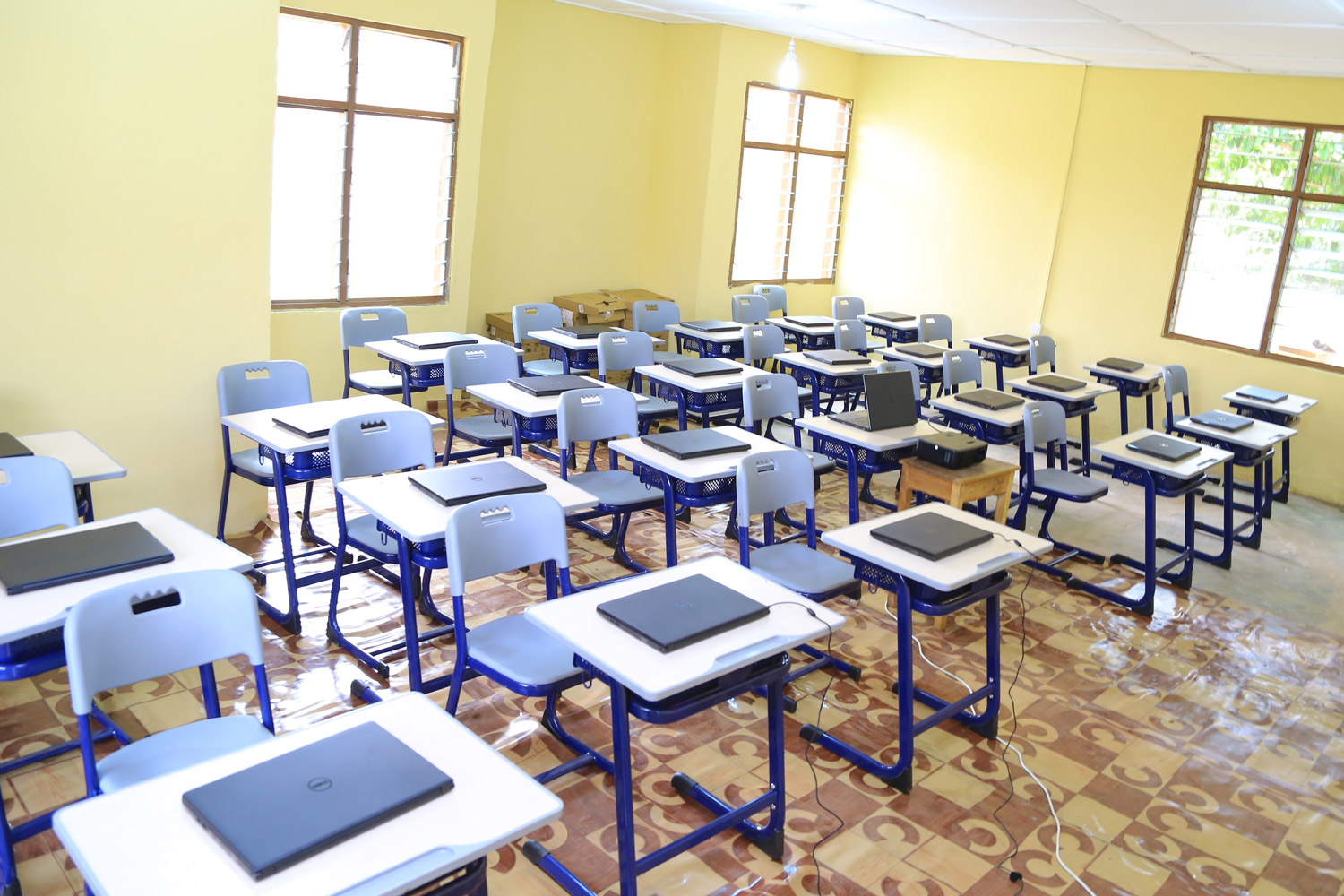
Around the world, a key part of Microsoft’s work is concentrated on empowering educators to create environments in and out of the classroom that guide and nurture student passion and enable students to achieve beyond their wildest imagination – making, designing, inventing and building the future. The technology resources included devices for students and their lab teacher, furniture – tables and chairs, school uniforms, mathematical sets, device security storage units, 1-year free 3G connectivity, a projector, screen, UPS back up and routers.
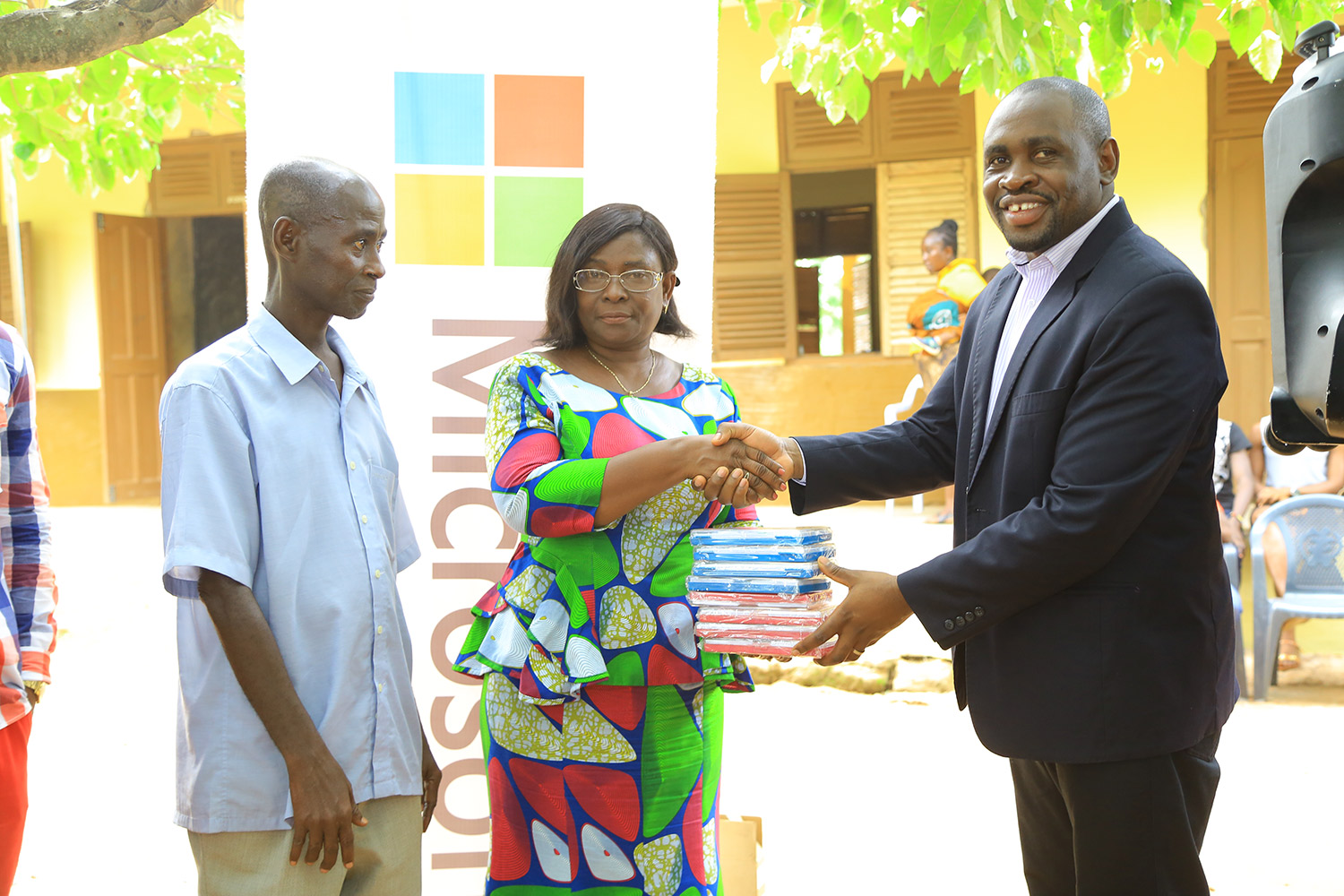
It doesn’t stop with the technology
But while providing the resources required provides one half of the solution – training is also vital in ensuring that educators have the global educator technology literacy competencies needed to provide greater learning experience for students.
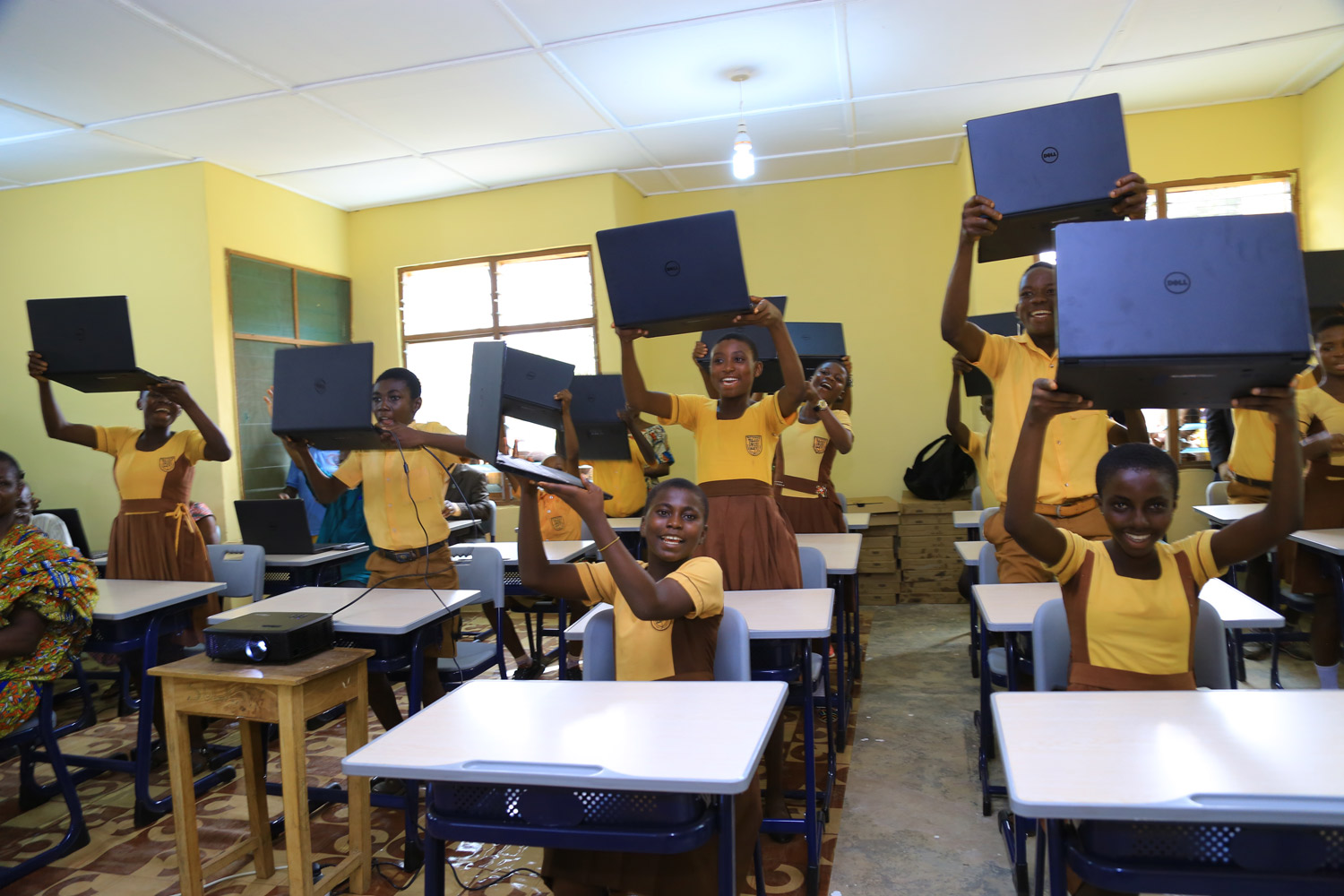
We’ve also invested in developing over 300 hours’ worth of free courses, where educators can participate in training and receive certification. The duration of each course is between 1 and 3 hours. This ties together through assessments and a points-based system – therefore teachers in Ghana and worldwide have access to all these learning tools.
We’re in it for the long haul:
Our commitment to education will not stop at this, we want to enable relevant education at all levels and enable youth to acquire the latest skills that will assist them to develop their potential, be productive and promote a technology culture.
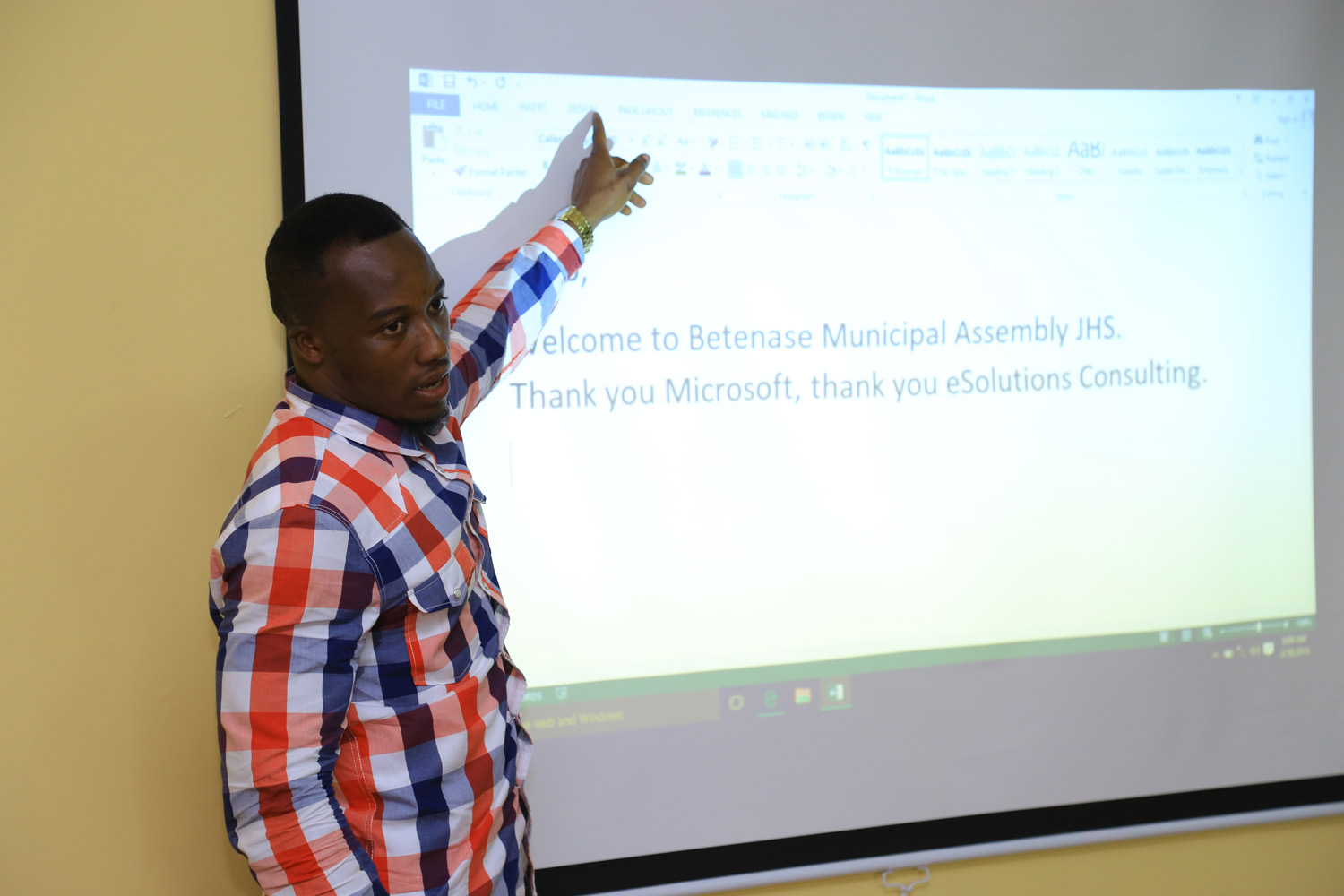
For more information around Microsoft’s education tools and resources, please click here.


